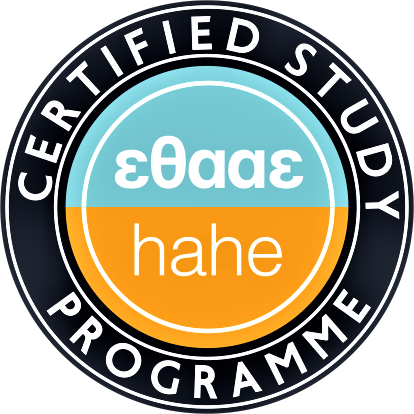E6. Geographic information systems and spatial analysis in history and archaeology
Instructors: Markos Katsianis – Eleni Gkadolou
Elective, Teaching Period C, ECTS: 6,
Contents
Βasic principles of Geographic Information Systems (GIS) in Archeology and History are presented. Spatial data structures and geodesy. Databases and thematic mapping. Digitization of spatial data sets, geo-referencing of images. Spatial and thematic querying. Exploratory Data Analysis and Geostatistical Methods. Spatial Interpolation and Digital Terrain Models. Spatial transformations in Vector and Raster datasets. Advanced Vector and Raster Functions. Map composition. Instruction employs a combination of lectures and laboratory tutorials
Prerequisites
Students must have basic knowledge of data bases. It is recommended that students have attended the courses “Data Management” but its not mandatory.
Target Learning Outcomes
- Familiarization with techniques used for acquiring, managing and visualizing archaeological and historical information in space.
- Understanding of the theoretical implications of GIS as analytical aids in History and Archeology.
- Learning of basic procedures for recording, processing, analyzing and presenting spatial data using standard GIS software packages and selected application examples.
Bibliography
- Bodenhamer, D.J., Corrigan, J., & Harris, T.M. 2010. The Spatial Humanities: GIS and the Future of Humanities Scholarship. Bloomington: Indiana University Press.
- Conolly, J. & Lake, M. 2006. Geographical Information Systems in Archaeology. Cambridge University Press: Cambridge.
- Χαλκιάς, Χ. 2008. Γεωγραφικά Πληροφοριακά Συστήματα και Αρχαιολογία. Στο Λυριτζής, Ι. (επιμ.). Νέες τεχνολογίες στις αρχαιογνωστικές επιστήμες. Δαρδανός: Αθήνα. 337-358.
- Wheatley, D. & Gillings, M. 2003. Spatial Technology and Archaeology: The Archaeological Applications of GIS. Taylor & Francis.
Teaching methods
A weekly three hour lecture that includes projects. Four reading projects to cover issues of theoretical understanding as well as practical implementations (to be submitted).
Assessment methods
Final grade consists of the average grade of the submitted projects (80%) and the grade from participating and responding during lectures (20%).
Teaching Language
Greek



